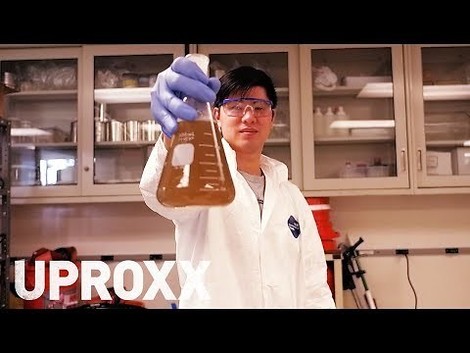Your podcast discovery platform
Curious minds select the most fascinating podcasts from around the world. Discover hand-piqd audio recommendations on your favorite topics.

piqer for: Global finds Doing Good
Michaela Haas, PhD, is the award-winning author of four non-fiction books, most recently Bouncing Forward: The Art and Science of Cultivating Resilience (Simon&Schuster). She is a member of the Solutions Journalism Network and writes a weekly solutions column for the German Süddeutsche Zeitung Magazin. Her articles have been published on CBS, the Washington Post, the Huffington Post, Daily Beast, and many other reputable media.
Is This The Solution To Plastic Waste Pollution?
With China refusing to recycle our trash any longer, and countries from India to Kenya experimenting with banning single-use plastics, the need to find alternative ways to produce and use plastics is overwhelmingly urgent. As humans, we're producing more than 250 million tons of petroleum plastic worldwide per year, which ends up in our oceans, landfills and, ultimately, our bodies. Scientists estimate that by 2050 there will be more plastic in the ocean than fish.
What's the solution?
Californian twins Jeff and Dane Anderson are avid surfers, and their hobby of daily bodysurfing — and getting hit by plastic trash in the process — drove home the urgency of the issue. “We set out to solve two problems at once,” claims Jeff Anderson: “the mountain of food waste and the mountain of plastic waste.” They developed a new technology that uses a free resource, organic waste, and tweaked the traditional process of composting with modified bacteria to turn waste into truly biodegradable plastic. Ideally, the plastic gets returned to them after it has been used and they will feed it back into the same composting process. That's why they named their company Full Cycle Bioplastics.
More often than not, the term “bioplastics” equals greenwashing. Many of the so-called bioplastics require precious resources, chemicals, GMO-bacteria, or vast amounts of energy, and often they are actually not biodegradable. The Andersons, however, produce biopackaging that will merely degrade like compost or turn into fish food if it ends up at the side of the road or in the ocean. Their manufacturing process is even carbon-negative. The product has already won half a dozen innovation awards, including the Sustainable Entrepreneurship Award 2016, and is currently in the upscaling stage.
It helps that they are also pretty cool surfer dudes, as you can see in this Uproxx video:
